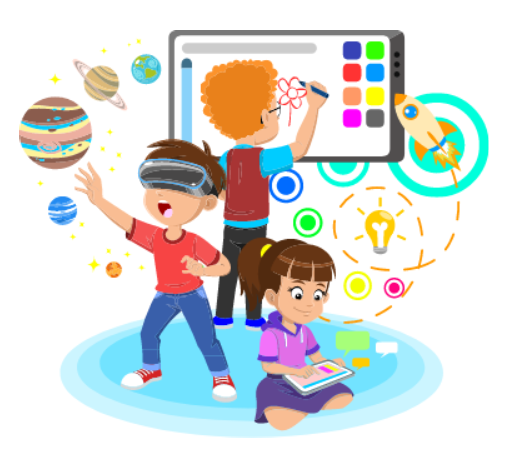
What is Social Emotional Learning & Emotional intelligence?
Social Emotional Learning
The term “social-emotional learning” refers to a method of education that emphasizes helping kids learn to recognize and control their feelings. The Fetzer Institute in Kalamazoo, Michigan, was the birthplace of the word in 1994 when they held a conference on fostering healthy child growth. Concerns regarding a need for more programming and coordination at the school level were addressed through the collaborative efforts of educators, researchers, and advocates. Social and emotional learning (SEL) is a word and a movement that sprang from that conference and has since been adopted by forward-thinking teachers all around the United States to provide a well-rounded education for their students.

Social and emotional learning (SEL) is how children and adults understand and manage emotions, set and achieve positive goals, feel and show empathy for others, establish and maintain positive relationships, and make responsible decisions. SEL can be integrated into various aspects of a student’s life, such as the classroom, home, and community.
At its core, SEL is about giving these people a way to develop skills like “understanding and managing emotions,” “setting and achieving positive goals,” “feeling and showing empathy for others,” “establishing and maintaining positive relationships,” and “making responsible decisions,” as defined by the Collaborative for Academic, Social, and Emotional Learning (CASEL).
Emotional intelligence (EQ)
Emotional intelligence (EQ) refers to the ability to recognize, understand, and manage one’s own emotions, as well as the emotions of others. It is a set of skills that can be developed and improved over time.
Some of the key components of emotional intelligence include:
- Self-awareness: being aware of one’s own emotions and how they affect behavior
- Self-regulation: being able to control and manage one’s own emotions
- Motivation: using emotions to drive action toward goals
- Empathy: understanding and responding to the emotions of others
- Social skills: effectively communicating and building relationships with others
Emotional intelligence is important in various settings, including the workplace, education, and personal relationships. People with high emotional intelligence tend to be more successful in their careers, have better relationships, and are better able to navigate life’s challenges.
Various methods can improve emotional intelligence, including self-reflection, mindfulness practices, and social interactions. There are also various assessment tools available for measuring emotional intelligence.
Goals of SEL:
- Encourage learners to improve qualities such as introspection, self-control, social intelligence, interpersonal competence, and accountability
- Boost students’ confidence in themselves, their peers, and their academic ability
- Students who are more prepared for college, have higher self-esteem and are more committed to their education perform better on standardized tests
Benefits of SEL:
- Academic success is important, but SEL also helps children become more adaptable in their social interactions, making it easier for them to take constructive criticism from their peers and grow from their experiences
- Students in SEL courses experience less emotional disturbance. This is a direct outcome of pupils learning to listen attentively and empathize with one another
- Better test results and overall academic improvement are expected in a secure classroom setting
- High-quality SEL programs favor kids’ academic achievement, social and personal growth, crime prevention, and economic performance because they foster in them a deep understanding of themselves